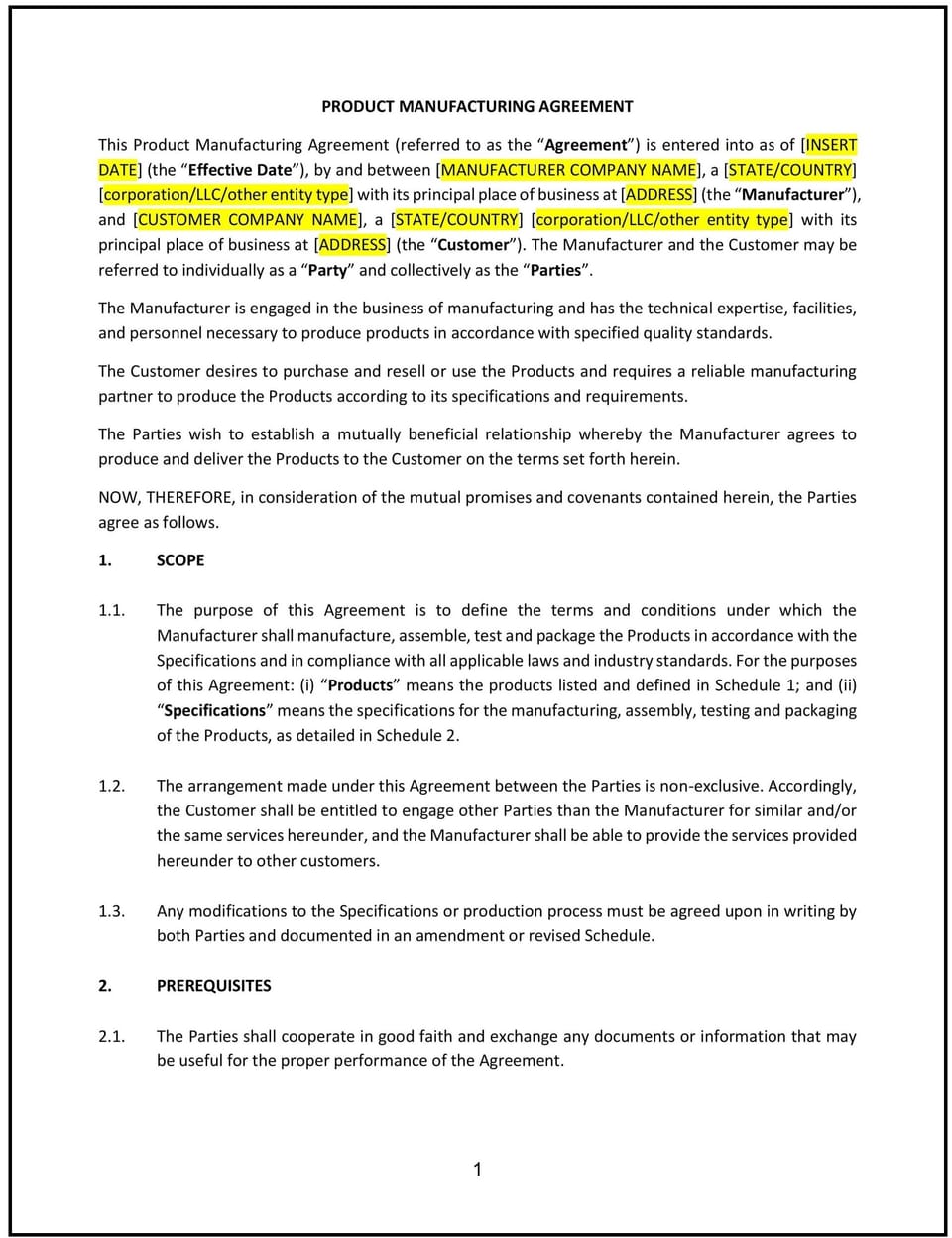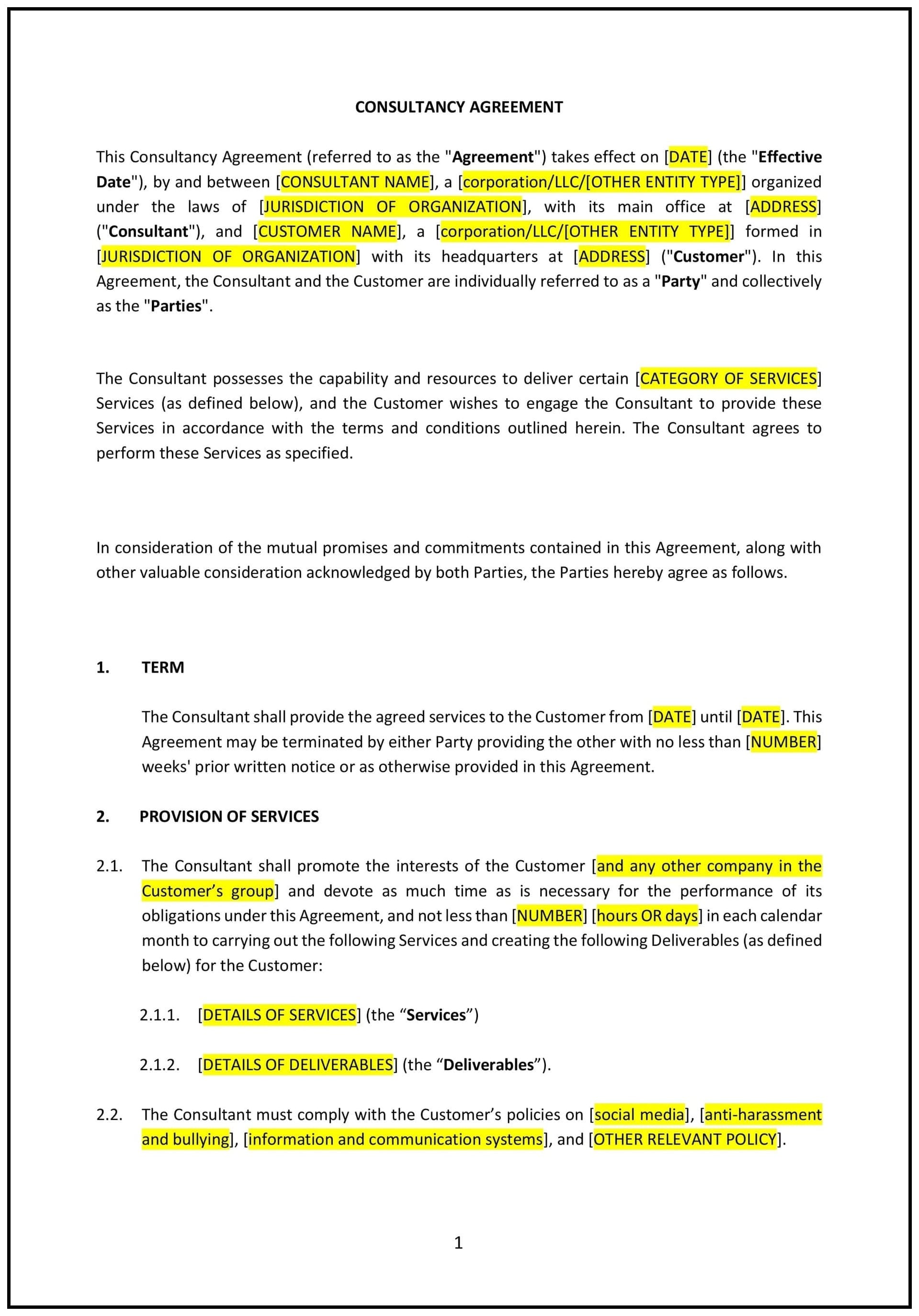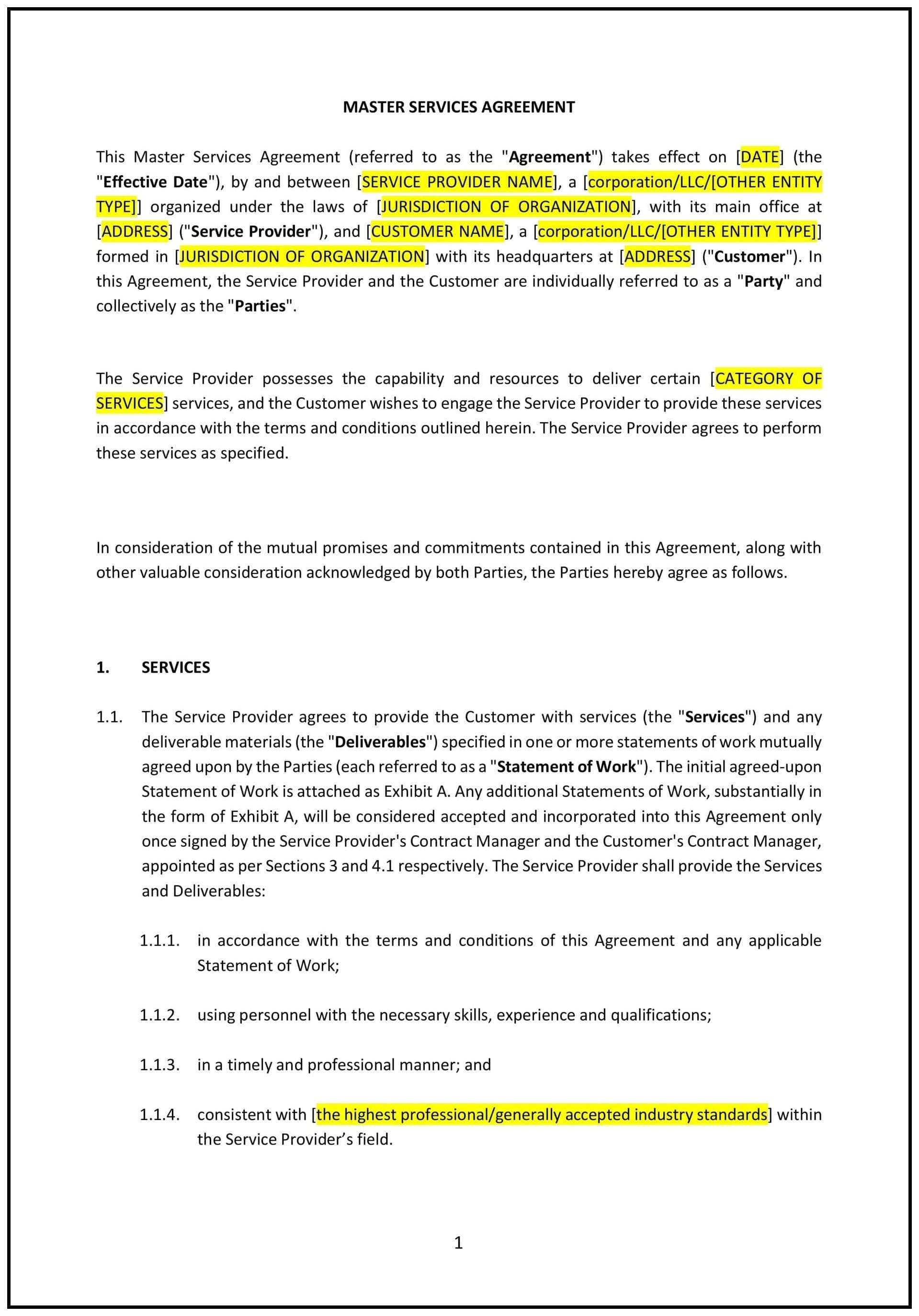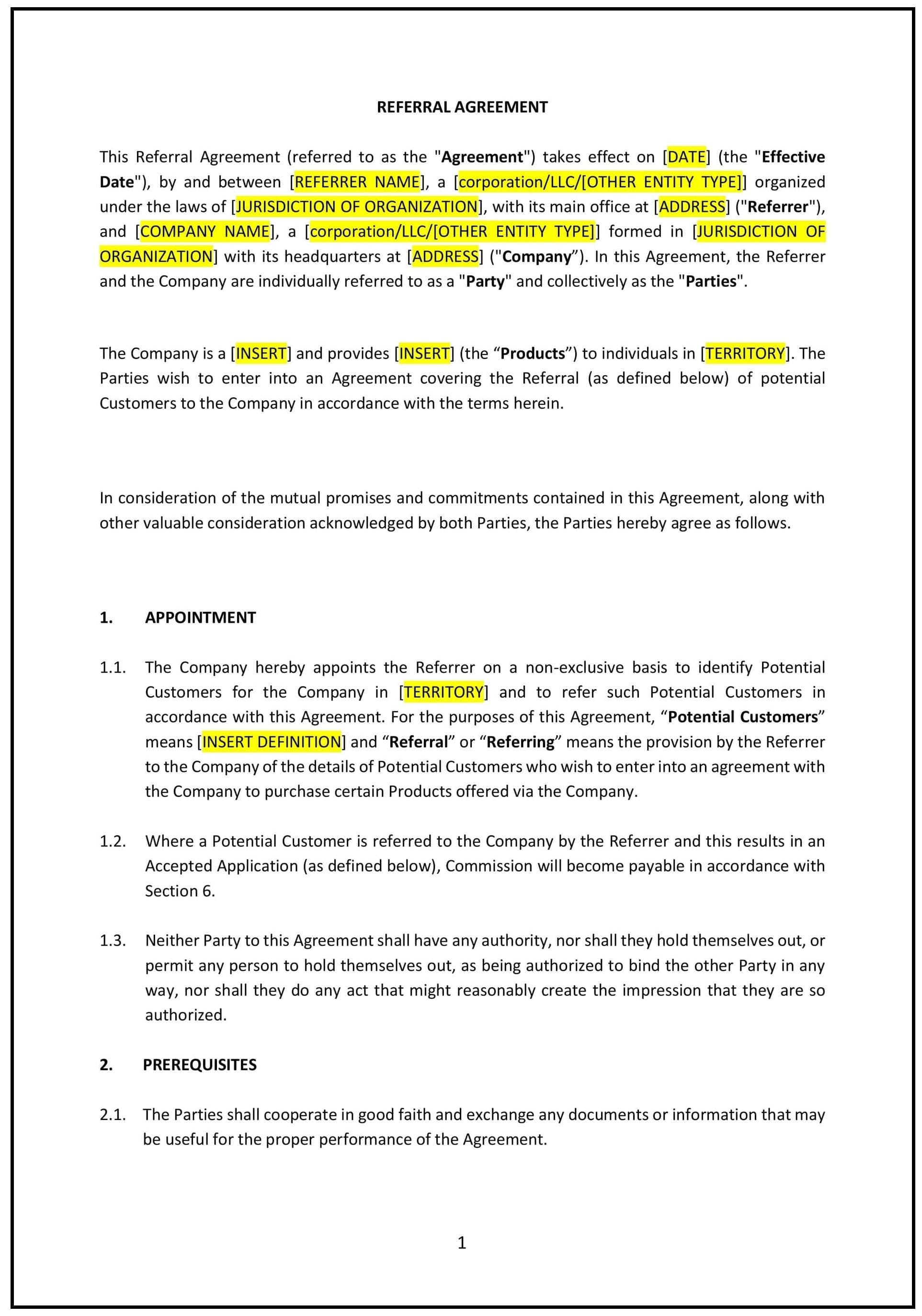Product Manufacturing Agreement (Arkansas): Free template

Product Manufacturing Agreement (Arkansas)
A Product Manufacturing Agreement is a legal contract between a manufacturer (the "Manufacturer") and a client or company (the "Client"), where the Manufacturer agrees to produce goods according to the Client's specifications. In Arkansas, this agreement must comply with state laws regarding contracts, business transactions, intellectual property, and consumer protection. A well-drafted agreement ensures clarity, minimizes disputes, and protects both parties' interests.
For example, a small business in Little Rock might enter into a Product Manufacturing Agreement with a manufacturer in Fayetteville to produce custom-branded furniture. A clear agreement specifies product specifications, pricing, timelines, quality standards, and other critical details.
Tips for drafting and maintaining a Product Manufacturing Agreement in Arkansas
- Identify the parties: Clearly specify the names, contact information, and roles of both the Manufacturer and the Client.
- Example: “This Product Manufacturing Agreement is entered into by [Manufacturer Name], located at [Address], and [Client Name], located at [Address].”
- Define the product specifications: List the specific products to be manufactured, including materials, dimensions, designs, and any branding or labeling requirements.
- Example: “The Manufacturer agrees to produce the following products: [Description of Products, e.g., custom t-shirts, branded mugs, etc.]. The products shall meet the specifications provided by the Client in Exhibit A.”
- Specify pricing and payment terms: Outline how the Client will compensate the Manufacturer, including deposits, installment payments, and final balances.
- Example: “The Client shall pay a deposit of [Amount]uponsigningthisagreementandtheremainingbalanceof[Amount] no later than [Date/Upon Delivery].”
- Address timelines and deliverables: Detail the schedule for production, delivery, and any milestones.
- Example: “The Manufacturer shall complete production and deliver all products by [Delivery Date] and provide a detailed production timeline to the Client no later than [Date].”
- Include quality standards: Set expectations for product quality, testing procedures, and adherence to agreed-upon specifications.
- Example: “The Manufacturer shall adhere to industry standards and ensure all products meet the quality specifications outlined in Exhibit A.”
- Add intellectual property provisions: Clarify ownership of intellectual property, such as designs, trademarks, or patents.
- Example: “All intellectual property rights related to the products, including designs and branding, shall remain the exclusive property of the Client.”
- Include liability and indemnification: Clarify each party’s liability in case of errors, damages, or breaches of the agreement.
- Example: “The Manufacturer shall not be liable for any delays or issues caused by factors outside their control, such as supply chain disruptions or natural disasters.”
- Include a termination clause: Specify conditions under which the agreement can be terminated by either party.
- Example: “This agreement may be terminated by the Client with [Number] days’ written notice, subject to forfeiture of the deposit.”
- Outline governing law and jurisdiction: Ensure the agreement specifies that it is governed by Arkansas law and identifies the appropriate courts for dispute resolution.
- Example: “This agreement is governed by the laws of the State of Arkansas. Any disputes arising under this agreement shall be resolved in the courts of [County], Arkansas.”
- Include signatures: Both parties must sign and date the agreement to make it legally binding.
- Example: “IN WITNESS WHEREOF, the parties have executed this Product Manufacturing Agreement as of the date first written above.”
Frequently asked questions (FAQs)
Q: What happens if the Manufacturer uses substandard materials in Arkansas?
A: If the Manufacturer fails to meet the agreed-upon material specifications, the Client may reject the products, request a refund, or pursue compensation for losses, depending on the terms of the agreement.
Q: Can the Manufacturer subcontract part of the production process in Arkansas?
A: Subcontracting must be explicitly allowed in the agreement. If not specified, the Manufacturer may need written consent from the Client before subcontracting any work.
Q: How are defects or non-conforming products handled under Arkansas law?
A: The agreement should include a warranty or defect resolution clause. Typically, the Manufacturer is required to repair, replace, or refund defective products within a specified timeframe.
Q: What happens if the Manufacturer misses the delivery deadline in Arkansas?
A: The agreement should outline penalties or remedies for late delivery, such as partial refunds, discounts, or contract termination, depending on the severity of the delay.
Q: Can the Client modify the product specifications after signing the agreement in Arkansas?
A: Modifications require mutual consent and should be documented in writing. Additional costs or timeline adjustments may apply based on the changes.
Q: Are confidentiality clauses enforceable in Arkansas?
A: Yes, confidentiality clauses are enforceable in Arkansas, provided they are reasonable in scope and duration. They protect sensitive information shared during the manufacturing process.
This article contains general legal information and does not contain legal advice. Cobrief is not a law firm or a substitute for an attorney or law firm. The law is complex and changes often. For legal advice, please ask a lawyer.


